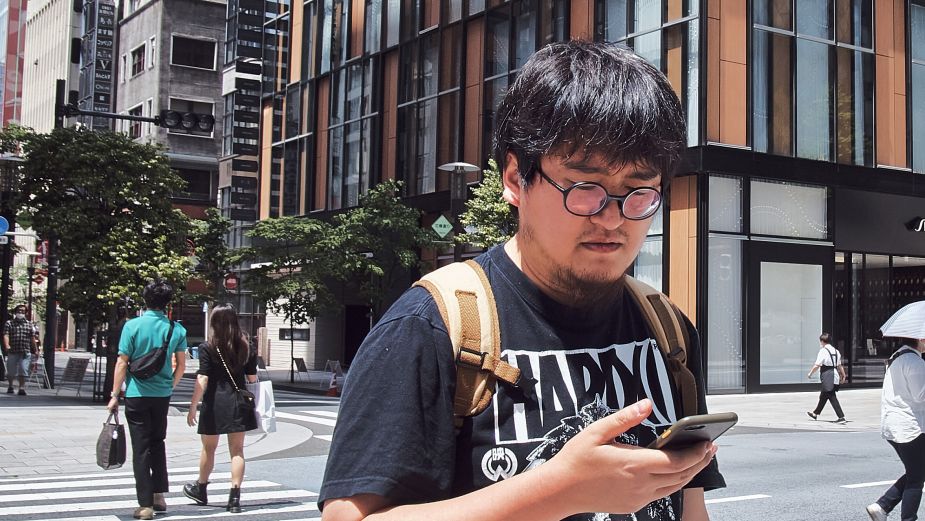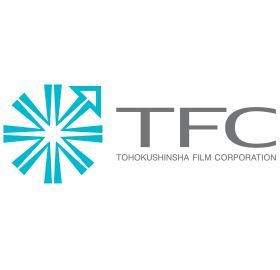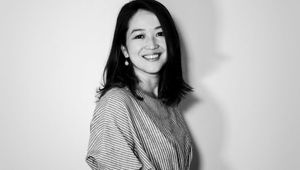
The Directors: Yosuke Kobayashi

Born in Nagano Prefecture and currently based in Tokyo, Yosuke Kobayashi began making films as a student at Waseda University, and continued making short films and music videos while working as a production manager and producer.
He joined OND° in 2019 and made his directorial debut in 2021. He currently plans and directs commercials, music videos, and short films, and has done work for national brand clients including Suntory, Daihatsu, and many others.
Name: Yosuke Kobayashi
Location: Japan
Repped by: OND°
Awards: Grand Prix for GEMSTONE Remote Film Competition
LBB> What elements of a script sets one apart from the other and what sort of scripts get you excited to shoot them?
Yosuke> Of course I appreciate when the product and theme are made perfectly clear during the creative planning stage, but if the work is such that its essence is something not written in the script, then it's something that I really look forward to. Light, the wind, facial expressions that can’t be expressed in a simple statement, the atmosphere in between moments... these kinds of things.
LBB> How do you approach creating a treatment for a spot?
Yosuke> There isn’t a set method. It’s always a sort of reaching in the dark. Every time it feels like I’m writing a letter to someone I’m meeting for the first time. In terms of my physical approach, I often start by drawing a single sketch in a small notebook, and then another, and when I have several that feel right, I begin to structure the spot. Also, although I don’t include it in the materials or explain it, I often choose a single work of literary art completely unrelated to the product or project. A novel, poem, essay, comic...and use the atmosphere and nuance of that work as an image reference. It’s not a direct quote, just a personal theme, but I feel like it adds depth, and it’s fun.
LBB> If the script is for a brand that you're not familiar with/ don’t have a big affinity with or a market you're new to, how important is it for you to do research and understand that strategic and contextual side of the ad? If it’s important to you, how do you do it?
Yosuke> I think it’s important that the grasp on the brand and market don’t deviate from the creative idea, so I try to consistently keep the interpretation of the creative team in mind as accurately as possible. If there are people around me who use the product, I will listen to what they have to say implicitly, but if I do things like half-baked internet research, I may lose my way.
LBB> For you, what is the most important working relationship for a director to have with another person in making an ad? And why?
Yosuke> That’s a difficult question to answer quickly, but personally I was a production manager for a long time, and I think it’s important that production managers understand the creative idea and the expression, and that they can engage in the project positively and enjoyably on equal footing with the director, in the atmosphere and excitement of the whole process. I think that is directly linked to the quality of the finished spot. So, I think that the production manager is vital for the “interior” of a spot, and as for the “exterior”, that’s where the DP comes into play. Even if directorially there’s a solid idea of what the image should look like on screen, in the end I think it’s more important that the DP shoots images that they think will “work”. The DP on the outside, may be the most vital of all, in terms of giving you something that you don’t already have inside yourself.
LBB> What type of work are you most passionate about - is there a particular genre or subject matter or style you are most drawn to?
Yosuke> It’s not really a specific genre, but more about the visuals of the work itself. I’m attracted to pieces where the camera is an independent character, whether it’s reality-based or completely fictional, I’m charmed by work that is shot in a way that feels indifferent to the scene as it unfolds. A certain hesitation to get caught up in the feelings of the character. That’s why I like work shot in a documentary style, and even in work dealing with science fiction or fantastical subjects, I try to create expressions that have a certain inevitability and persuasiveness, with camerawork that is simply a slice of reality, so there’s as little self-indulgence as possible.
LBB> What misconception about you or your work do you most often encounter and why is it wrong?
Yosuke> I’ve never really felt that my work has been strongly misunderstood, but I do feel that often the simpler the finished product, the more complicated the required preparation becomes; and the more complicated the finished product, the more loosely one can explore all kinds of possibilities leading up to the shoot. Often this idea isn’t easy to communicate.
Also...recently a lot of pre-production has been happening remotely, and apparently I look relatively small through a screen, and people are surprised when they encounter me in person and see that I’m a 185cm, 100kg giant.
LBB> What’s the craziest problem you’ve come across in the course of a production – and how did you solve it?
Yosuke> When I was a fledgling director, directly after the offline review of a spot that was three minutes long, the hard drive crashed. Working from the editing data backup from the previous day and the quick time files made for checks, we worked through the night and managed to stitch it together by morning. Since then, I do backups more frequently.
LBB> How do you strike the balance between being open/collaborative with the agency and brand client while also protecting the idea?
Yosuke> I make sure to explain to them thoroughly and logically why the idea is necessary. If they still aren’t able to understand, I give up promptly (it’s one more item in the pile of materials I can use some day).
I try to test the pattern as much as possible during the editing phase, (within the scope allowed if possible) and we have a discussion about it.
LBB> What are your thoughts on opening up the production world to a more diverse pool of talent? Are you open to mentoring and apprenticeships on set?
Yosuke> I think it’s good to be able to do new things and to have diverse talent on set, but creating a set with the flexibility to allow that is a difficult problem. (Sorry if I’m being vague) I’m not yet in a situation where I can really teach new directors, but I do think of myself as a director engaged in the work of training production managers (in some respects), so I share as much as possible to help them to grow.
LBB> How do you feel the pandemic is going to influence the way you work into the longer term? Have you picked up new habits that you feel will stick around for a long time?
Yosuke> There have been changes in the way we set up, and to the tempo on set, and I think those things will continue in the future. This may be the nature of the Japanese industry, but face-to-face meetings which were up until now assumed to be a matter of course have become unnecessary, for example we can have footage shot and participate in creative planning remotely, and I think it will be a positive thing in the future that the hurdles for getting remote crew involved have been lowered.
LBB> Your work is now presented in so many different formats - to what extent do you keep each in mind while you're working (and, equally, to what degree is it possible to do so)?
Yosuke> As a viewer I feel a lot of stress every day, so I am very conscious of the format. Is the main destination TV, or is it the web? If it is a web spot, are lots of people viewing it with their phones held vertically? Are they listening with earbuds? And so on. I’ve always loved movies, and I want to make cinematic narrative work, but I think that kind of thing is ideally viewed in a movie theater, so I would love to try making a movie someday if given the chance.
LBB> What’s your relationship with new technology and, if at all, how do you incorporate future-facing tech into your work (e.g. virtual production, interactive storytelling, AI/data-driven visuals etc)?
Yosuke> I’m particularly interested in virtual production. The reality is that it is difficult to take on big challenges on the sets I’m working on now, but I would like to try new ideas even on a minimal set, with things like miniature and stop motion photography.
LBB> Which pieces of work do you feel really show off what you do best – and why? (Please upload 4 videos to your company archive).
DAIHATSU - MOVE Canbus, "COLORING LIFE" Ocean ver.
I think I was able to express the simple and casual scene, and the way that time passes with a sense of distance as if it were something someone just happened to see.
“viewers:1” Short Film
I personally like the treatment of the “point of view” and the gimmick of questioning whether there is in fact someone watching the video.
SIGMA - Magnetic Metal Cap
I think I was able to successfully convert the sense of distance in taking a slice of life of these real life (non-actor) middle-aged men into humor.
AL - “Black-Tailed Gull” Music Video
A simple slice of life scene with an awareness of “point of view.”










